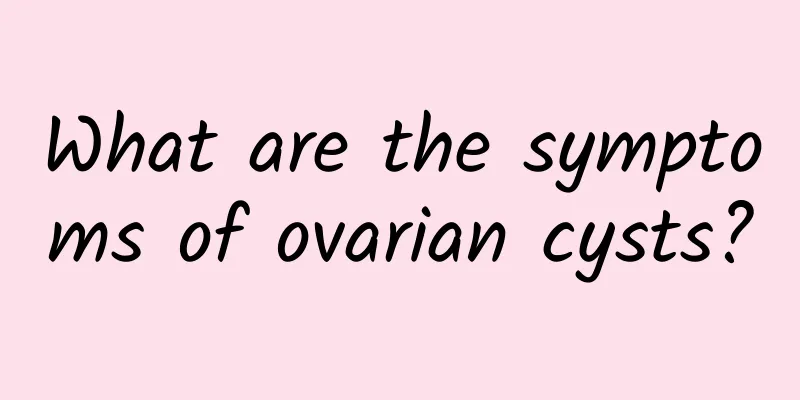What is the best way to treat pelvic effusion?

|
There is no best treatment for pelvic effusion. Pelvic effusion refers to the accumulation of fluid in the pelvic cavity, which may be caused by a variety of reasons, such as inflammation, infection or gynecological diseases. Understanding and taking antibiotic treatment, physical therapy, surgical treatment, traditional Chinese medicine treatment, and lifestyle adjustments can effectively relieve symptoms and prevent complications. If symptoms persist, it is recommended to seek medical attention in time and take appropriate treatment measures under the guidance of a doctor. The details are as follows: 1. Antibiotic treatment: If pelvic effusion is caused by infection, antibiotic treatment is the first choice. Pelvic effusion is often caused by pelvic inflammatory disease, which is mostly caused by bacterial infection. Antibiotic treatment can effectively kill infected bacteria, reduce inflammation, and eliminate effusion. Using broad-spectrum antibiotics under the guidance of a doctor and adjusting medication according to bacterial culture results can improve the treatment effect. During treatment, it is necessary to strictly follow the doctor's medication instructions, complete the entire course of treatment, and avoid the occurrence of antibiotic resistance. Through antibiotic treatment, in most cases, the infection can be effectively controlled and pelvic effusion can be eliminated. 2. Physical therapy: Physical therapy can promote pelvic blood circulation and reduce fluid accumulation. Physical therapy is an auxiliary method for treating pelvic effusion. It can promote pelvic blood circulation, enhance local metabolism and reduce fluid accumulation through physical therapy methods such as hot compress, ultrashort wave, infrared, etc. Daily physical therapy can effectively relieve the symptoms of pelvic effusion and promote the absorption of effusion. Physical therapy needs to be performed under the guidance of a doctor or physical therapist to ensure the safety and effectiveness of the treatment. Through physical therapy, pelvic effusion can be effectively reduced and the quality of life can be improved. 3. Surgical treatment: Severe pelvic effusion or suspected tumors may require surgical treatment. Surgical treatment is an effective way to deal with severe pelvic effusion or suspected tumors. The effusion and diseased tissues are removed through surgery to restore the normal function of the pelvis. Laparoscopic surgery under the doctor's advice can effectively remove the effusion and diseased tissues and relieve symptoms. After the operation, you need to pay attention to rest, avoid strenuous activities, and have regular checkups to ensure a good recovery after the operation. Through surgical treatment, the problem of pelvic effusion can be effectively solved and the quality of life can be improved. 4. Traditional Chinese Medicine Treatment: Traditional Chinese medicine conditioning can effectively relieve the symptoms of pelvic effusion. Traditional Chinese medicine treatment is a traditional method for treating pelvic effusion. By using traditional Chinese medicine prescriptions that promote blood circulation and remove blood stasis, it can regulate the qi and blood in the body and promote the absorption of pelvic effusion. Using traditional Chinese medicine conditioning under the guidance of a traditional Chinese medicine practitioner, such as Siwu Decoction, Guizhi Fuling Pills, etc., can effectively relieve the symptoms of pelvic effusion. Combined with acupuncture treatment, it can further enhance the efficacy and promote pelvic blood circulation. Traditional Chinese medicine treatment needs to be carried out under the guidance of a traditional Chinese medicine practitioner to ensure the safety and effectiveness of the treatment. Through traditional Chinese medicine conditioning and acupuncture treatment, pelvic effusion can be effectively relieved and the quality of life can be improved. 5. Lifestyle adjustment: Pelvic effusion can be prevented and relieved by adjusting diet and lifestyle habits. Good living habits play an important role in the prevention and treatment of pelvic effusion. Maintaining good personal hygiene, avoiding excessive fatigue, exercising moderately, and enhancing immunity can effectively prevent and relieve pelvic effusion. It is recommended to do moderate gentle exercise every day, such as walking, yoga, etc., to promote pelvic blood circulation. Maintaining healthy eating habits, consuming more fresh fruits and vegetables, and avoiding the intake of high-fat and high-sugar foods can prevent the occurrence and development of pelvic effusion. In order to better prevent and manage pelvic effusion, it is recommended to maintain a healthy lifestyle, pay attention to personal hygiene, and have regular health checks. If the symptoms of pelvic effusion persist or are accompanied by other serious symptoms, it is recommended to seek medical attention in time to ensure correct diagnosis and treatment. Through treatment and reasonable care measures, pelvic effusion can be effectively controlled and the quality of life can be improved. |
<<: Three colors of blood in threatened abortion
>>: What are the symptoms of adnexitis?
Recommend
A brief discussion on the reasons why candidal vaginitis cannot be cured for a long time
The long-term treatment of candidal vaginitis is ...
Who are the main groups of people who suffer from pelvic inflammatory disease?
Who are the main groups of people who suffer from...
Children don’t like to drink traditional fresh milk?
Doctor: You might as well try pasteurized fresh m...
Is it easy to get fat by eating vegetarian food? 3 myths quickly solved
Are you a "foreigner" who eats out for ...
Pesticide-toxic fruit and vegetable controversy: The pass rate is nearly 95%
On the 24th, Greenpeace announced the results of ...
Will wearing braces make you thinner? Famous weight loss doctor: If you eat the wrong food, you will still be fat!
"Wearing braces will make you lose weight!&q...
What to do if you have ovarian cysts during pregnancy
What to do if you have ovarian cysts during pregn...
Does pregnancy miscarriage lead to premature ovarian failure?
Pregnancy miscarriage does not directly lead to p...
Analysis of the physical therapy of cervical hypertrophy
In recent years, more and more female friends hav...
Can Bartholinitis be cured?
Bartholinitis is a disease caused by long-term st...
Is there a difference between cervical erosion and pelvic inflammatory disease?
Is there a difference between cervical erosion an...
What is the reason for excessive female flow? Women can take these 5 medicines for irregular menstruation
Women's menstrual volume, many people either ...
Causes of menopausal bleeding
Before and after menopause, women will experience...
Can folk remedies be used to treat cervical erosion? Women can try three folk remedies to treat cervical erosion
What are the folk remedies for treating cervical ...
How to lose weight during menopause? Nutritionist: The key is this trick...
Woman! Do you know what the "golden cross li...









